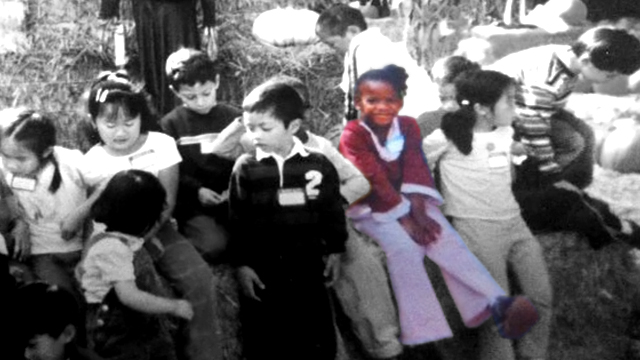For eighth-grader Roberta Stromas, the school playground had been a source of pain and anguish. On several occasions, her peers would not include her while hanging out, playing games or even sharing. This had all been attributed to the color of her skin. Roberta is African American and in the past her friends have had a problem with that.
“Racism really kind of stopped me from accomplishing my goals in life because it made me think about is this person going to judge me because I’m black? Is this person going to make assumptions about me because of the color of my skin? I kind of hide it that it don’t affect me, but it’s like when I get home it plays over and over in my head of what happened… I try to say to myself they’re missing out, but I feel like I’m missing out on a friendship. ”
In her film The Skin I’m In, Roberta meditates on her experiences with race in her friendships and how it affects her. She acts differently in front of her family, showing them that she is a happy girl, but inside she is angry and sad. Roberta comments on the strength of those who participated in the Civil Rights Movement and the Black Panther Party and how they have helped build a brighter future. But, racism still exists and at the end of the film, Roberta makes a call for action to end racism entirely.
Here’s her film The Skin I’m In, also produced by Brianna Lyon, Zack Ledo, and Da’Shun Frelot.
